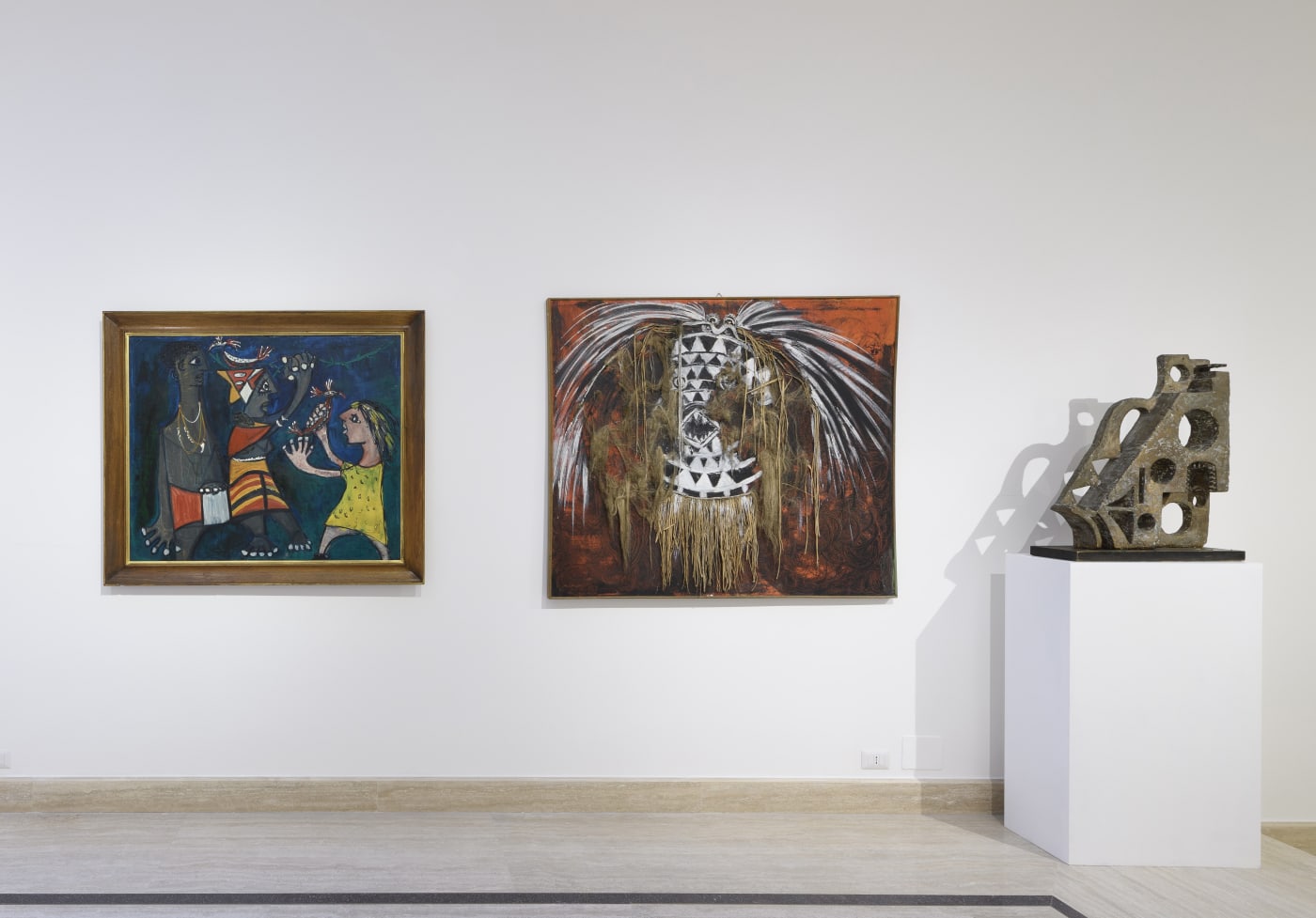Bertina Lopes was a Mozambican painter, sculptor, and activist whose work highlighted the social criticism and nationalistic fervor that influenced other Mozambican artists of her time. Born in Maputo, Lopes was the daughter of a Portuguese father and African mother. At an early age she left Mozambique to study in Lisbon where she was inspired by and engaged with the avant-garde painting of Portuguese Modernism as well as contemporary artistic international movements. After returning to Mozambique in 1953, cultural nationalism became a crucial influence both ideologically and artistically. Much of her body of work presents not only African iconography but also political events of the time. After a tumultuous and forced return to Europe, Lopes moved to Rome in 1963 where she remained for the rest of her life: during this period the subjects of African identity took on a new meaning, expressing an end to colonialism and a desire for independence.
Her works from 1970 until the late 1980s connote the grave economic and military problems of Mozambique’s victory for independence as well as the subsequent civil war ending in 1992. From the late 1990s up to the 2000s, Lopes’ work denotes a freedom of gestural abstract works and extraordinary colour, often with industrial paints.
Bertina Lopes achieved significant cultural recognition and won numerous awards and prizes. Her artworks are included in many private and public collections worldwide. In addition to her two participations in the Venice Biennale, major solo exhibitions include the FAO Global Headquarters (Rome) in 1996, the Italian Cultural Center in Jeddah (Saudi Arabia) in 1995, the National Museum of Modern Art of Baghdad in 1981, the Museo de Fundaçao Clouste Gulbenkian in Lisbon (Portugal) in 1972, twice at the National Museum Maputo (1982, 2012) as well as two major retrospectives in Rome (1986 and 2002).
 "/>
"/>

